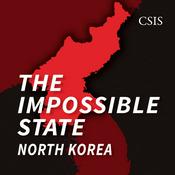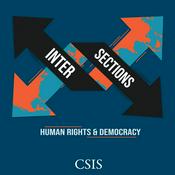The Truth of the Matter
CSIS | Center for Strategic and International Studies

Neueste Episode
Verfügbare Folgen
5 von 372
- AI Competition and Security: A discussion with Kemba Walden and Devin Lynch“We’re in a whole tangled mess…we’ve gotten ourselves into a tangled mess around not just securing our infrastructure, but also around competition for the pieces of our infrastructure.” AI has become a cornerstone of modern defense, economic security, commerce, and more. But without effective cybersecurity strategies, the technology that has helped drive U.S. innovation and productivity could become our Achilles heel. Kemba Walden, president of the Paladin Global Institute and former Acting National Cyber Director, and Devin Lynch, senior director of the Paladin Global Institute and former director in the Office of the National Cyber Director, join the podcast to discuss their new report, “The AI Tech Stack: A Primer for Tech and Cyber Policy,” and the importance of implementing effective security measures and infrastructure around its deployment.--------31:11
- Keeping Our Beaches Clean with the Surfrider FoundationThis summer, millions of Americans will head to the beach to beat the heat. But how clean is the water they're swimming in? At many beaches, especially on the East Coast, water quality is rarely tested for bacteria, pollution, and other health hazards that may be dangerous to both beachgoers and the many species that live in marine habitats. While the importance of clean drinking water is a well-known issue, pollution in swimming water has also become a serious public health issue in some areas of the United States, even causing national security issues for Navy SEALs, Border Patrol officers, and more who use these waters. Mara Dias, Water Quality Initiative senior manager at the Surfrider Foundation, joins the podcast to discuss how the Foundation's Blue Water Task Force helps monitor water quality at beaches across the country and the public health implications of reducing contamination.--------16:13
- NATO’s “Brain-Dead” Summit“I think what happened here is Europeans made a lot of commitments that they don’t have any intention of fulfilling—at least in the near term—and this is all about appeasing President Trump to keep him engaged with the NATO alliance.” At the recent summit in The Hague, Netherlands, NATO allies agreed to spend a target 5 percent of GDP on defense in a win for Donald Trump, who has repeatedly expressed the belief that European NATO allies are not spending enough. Was this a mistake—and can European nations afford to follow through?CSIS’s Max Bergmann, director of the CSIS Europe, Russia, and Eurasia Program, joins the podcast to discuss what really happened at the NATO summit and how defense spending will impact European economies going forward.--------24:44
- Did U.S. Strikes Prevent an Iranian Bomb—or Provoke One?“The word ‘obliteration’ is being used a lot…I think there’s a little more nuance to it.” Intelligence assessments from the International Atomic Energy Agency, Iran, and the United States have provided competing accounts of the functionality of Fordow, Iran’s critical uranium refinement site, and the Iranian nuclear program as a whole. The intelligence community still has a lot of blanks to fill in, including the extent of the damage to various Iranian nuclear sites, the state of Iran’s missile arsenal, and how much of a setback this represents for Iran’s nuclear program. CSIS’s Heather Williams, director of the CSIS Project on Nuclear Issues, joins the podcast to discuss the uncertain status of Iran’s nuclear program following Operation Midnight Hammer and what we should be watching for next.--------22:28
- Is Ideology Blinding Iran to Reality?“They didn’t understand the essence of Israel, and they are now dead.” Are Iran and regional terrorist groups like Hamas and Hezbollah considering the reality of Israel’s military posture and motivations? Iran may have underestimated Israel’s willingness to launch a surprise attack like the one that started the 12-day war, but with a fragile ceasefire in place, it is unclear whether Tehran’s military calculus has changed. Ambassador Dennis Ross, counselor and William Davidson Distinguished Fellow at the Washington Institute for Near East Policy and best known for serving in five U.S. presidential administrations, joins the podcast to discuss whether the war represents a turning point in Israel-Iran relations, if Israel exceeded its traditional defense posture, and how Iran should consider the state of play going forward.--------28:50
Weitere Wirtschaft Podcasts
Trending Wirtschaft Podcasts
Über The Truth of the Matter
A weekly analysis of the complex policy issues driving the news.
Podcast-WebsiteHöre The Truth of the Matter, bto – der Ökonomie-Podcast von Dr. Daniel Stelter und viele andere Podcasts aus aller Welt mit der radio.de-App

Hol dir die kostenlose radio.de App
- Sender und Podcasts favorisieren
- Streamen via Wifi oder Bluetooth
- Unterstützt Carplay & Android Auto
- viele weitere App Funktionen
Hol dir die kostenlose radio.de App
- Sender und Podcasts favorisieren
- Streamen via Wifi oder Bluetooth
- Unterstützt Carplay & Android Auto
- viele weitere App Funktionen


The Truth of the Matter
Code scannen,
App laden,
loshören.
App laden,
loshören.











































